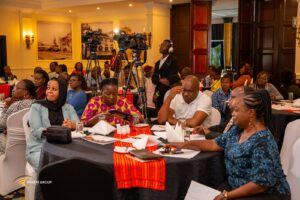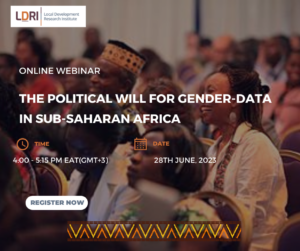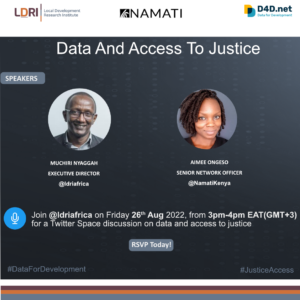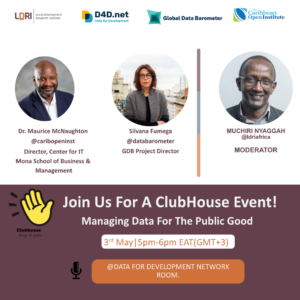![]()
The Data Revolution; Leave No Women Behind.
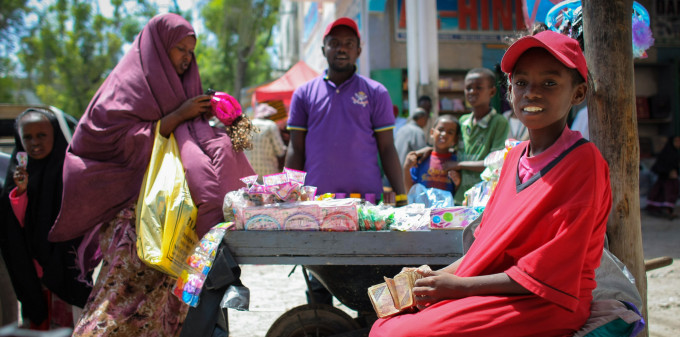

“The revolution and women’s liberation go together. We do not talk of women’s emancipation as an act of charity or out of a surge of human compassion. It is a basic necessity for the revolution to triumph.”
Thomas Sankara, President of Burkina Faso, 1983 – 1987
Gender equality and women’s empowerment remain central tenets for development progress on the continent with specific attention given to this in Africa’s 50 year vision and plan for development and integration, Agenda 2063. However, the nagging claws of gender inequality in the continent continue to impede women from contributing to the development agenda and lending their voice as they are precluded from many development-oriented conversations.
The very first National Forum on Harnessing the Data Revolution for Sustainable Development was held at the Laico Regency on 28th and 29th August 2015. Convened under the auspices of the Presidency through the Office of the Deputy President in collaboration with Partnership for African Social and Governance Research (PASGR), the Kenya Association of Manufacturers, Local Development Research Institute (LDRI) among other institutions, the forum emphasized the urgent need to harness the data revolution through collecting, sharing and disseminating data that would catalyze Kenya’s achievement of its development goals.
As he gave his keynote address and officially launched the National Partnership for Harnessing the Data Revolution on Sustainable Development, the Deputy President exuded excitement at the trajectory Kenya was taking in pioneering the data revolution in the continent. He recognized that accurate, timely, disaggregated and accessible data are essential for governments to deliver services efficiently, fairly and transparently as decisions not based on accurate data constitutes ‘guesswork’.
One area in which data is reducing any ‘guesswork’ that may exist is the fight against gender based violence. Dr Sam Nthenya, C.E.O of Nairobi Women’s Hospital/Gender Violence Recovery Centre, enlightened participants on how the hospital utilizes data to inform policy and to aid in decision making. Through data provided by the hospital legislators were able to formulate legislation on gender violence and rape in Kenya. With the help of data collected, they identified rape hot-spots and worked with the government to ensure that these areas in Nairobi are made safe through street lighting and policing. Additionally, relying on data and not mere guesswork, they pushed for policy to ensure that nurses undergo a mandatory training on dealing with gender based violence victims in the country.
Availability of gender disaggregated data still seems to be a challenge for many. One panelist at the forum noted how unfortunate it is that accident-victim data are not adequately disaggregated. Unavailability of gender disaggregated data on land ownership, taxation and small business ownership in Africa makes it difficult to determine where we are making progress and where we are leaving women and youth behind. How then can we track and monitor gender equality? How can we understand the different ways in which inequality plays out within African countries? How can we evaluate the domestication of normative frameworks such as the Maputo Protocol and map out the implementation gaps? How can we decipher the economic, social and political needs and rights that require urgent attention?
Financing our development as a continent will require innovative use of development assistance, more effective domestic resource mobilisation and a more active role for the private sector in development. However, if we are unable to tell in which ways policies are affecting those most at risk of falling into or remaining in extreme poverty, we may find ourselves no better off in 2030 than we are today. African countries are moving away from the focus on data for reporting to a focus on data for planning and therein lies our best propects for collecting the right data for monitoring and review later down the line. While data for reporting has built in incentives for manipulation, data for planning is more likely to be accurate, timely and frequently collected. As we heed the call of the Africa Data Consensus to bring multiple stakeholders to the data ecosystem and adopt new technologies, we have hope that Africa will begin to collect the highly disaggregated data we need to ensure the statistics and information we need to be innovative in reducing inequality is available to the right people at the right time. Kenya’s journey has begun, let’s eliminate the guesswork and do a stellar job for women and youth with Vision 2030 and the new development goals.
Image source: Flickr/Albany Associates

